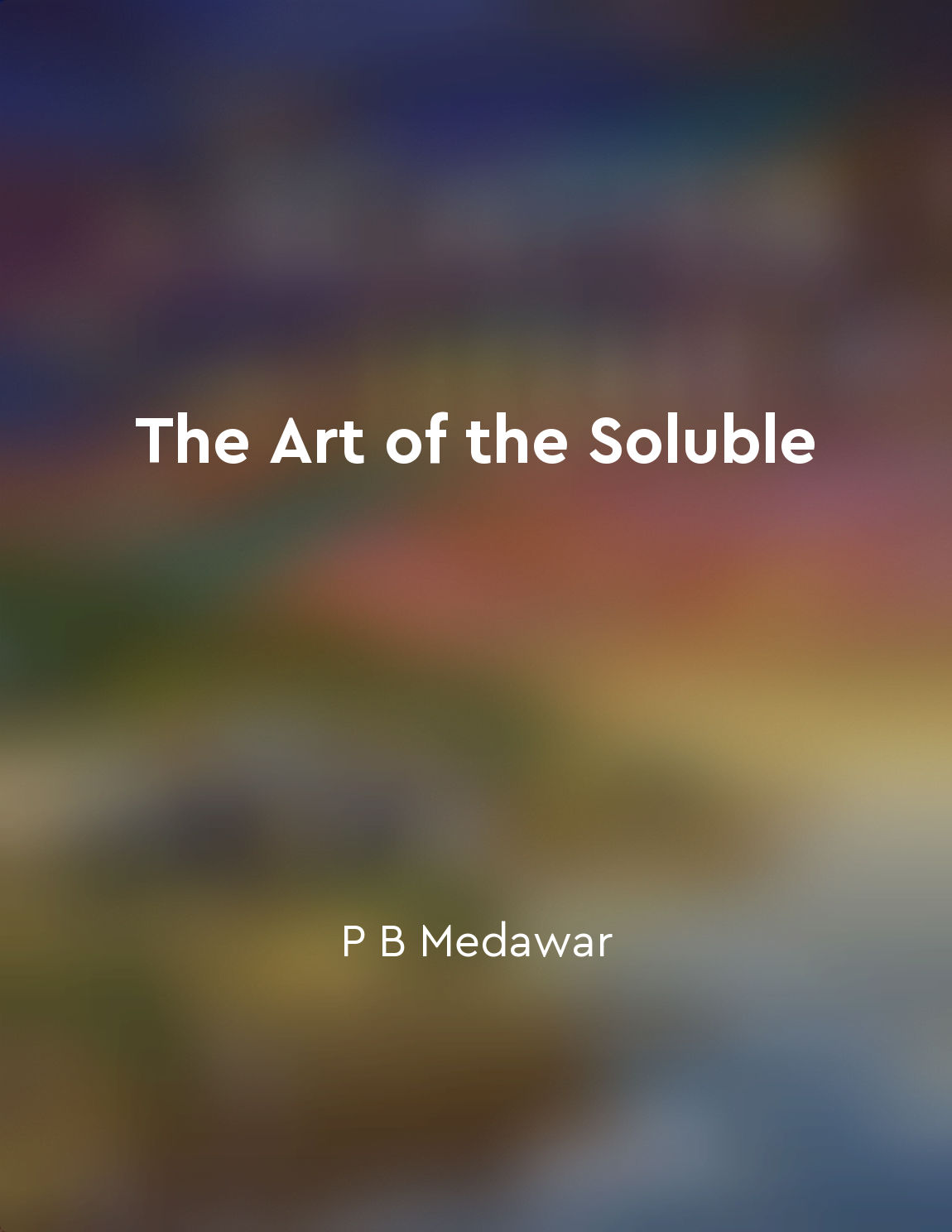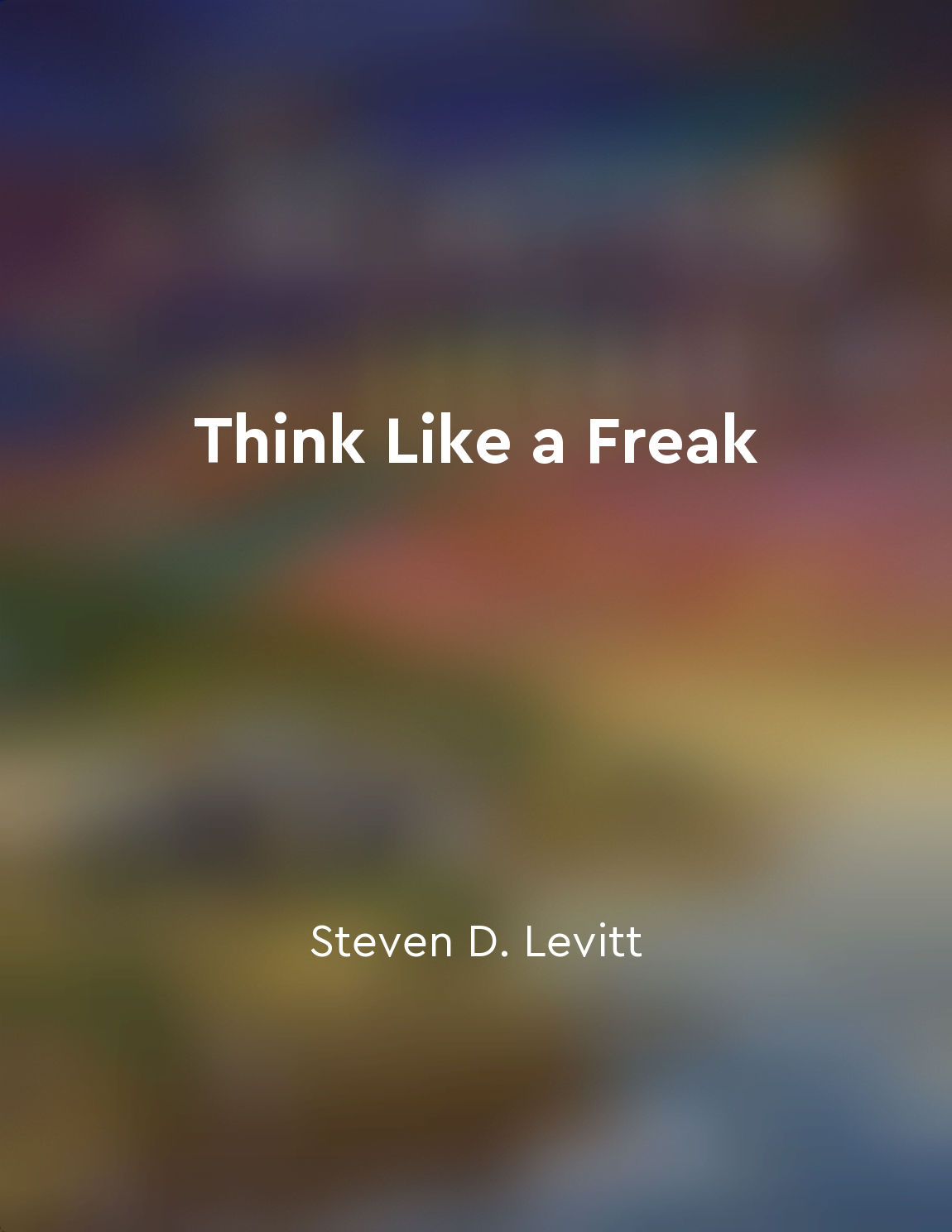Accept that you may be wrong from "summary" of The Independent Thinker: How to Think for Yourself, Come to Your Own Conclusions, Make Great Decisions, and Never Be Fooled by Patrick King
The idea that you might be wrong is a tough pill to swallow. It's not easy to admit that you could be mistaken about something, especially when you've invested time and effort into forming an opinion. But the truth is, no one is infallible. We all make mistakes, and we all have the potential to be wrong. Accepting that you may be wrong is not a sign of weakness; it's a sign of strength. It takes courage to challenge your own beliefs and consider the possibility that you might be mistaken. But doing so is essential for growth and self-improvement. When you acknowledge that you could be wrong, you open yourself up to new ideas and perspectives. Being open to the idea that you may be wrong also helps you become a more critical thinker. It encourages you to question your assumptions, seek out new information, and consider alternative viewpoints. This kind of intellectual humility is crucial for making sound judgments and decisions. Furthermore, accepting that you may be wrong can help you avoid falling victim to cognitive biases and logical fallacies. These mental shortcuts can lead you astray and prevent you from seeing the full picture. By being willing to entertain the possibility that you might be mistaken, you can guard against these pitfalls and arrive at more accurate conclusions.- Embracing the idea that you may be wrong is a key aspect of independent thinking. It requires humility, courage, and a commitment to intellectual honesty. By accepting that you could be mistaken, you position yourself to learn and grow, make better decisions, and avoid common pitfalls in reasoning. So, next time you find yourself in a debate or facing a difficult decision, remember to keep an open mind and consider the possibility that you might be wrong.
Similar Posts

The natural world is governed by laws that can be understood through observation and experimentation
The idea that the natural world operates according to discernible laws that can be uncovered through careful observation and co...

Coddling students leads to fragility
When we shield students from discomforting ideas and experiences, we inadvertently hinder their ability to cope with challenges...
Embracing complexity in simplicity
The concept of embracing complexity in simplicity is not an easy one to grasp for those who are accustomed to thinking that com...

Balance optimism with realism
Optimism is a powerful force that propels us forward, motivating us to take risks and pursue our goals with unwavering determin...

Questioning assumptions is necessary for clear thinking
Questioning assumptions is like peeling back the layers of an onion. Each assumption forms a layer that obscures our view of re...
This requires humility and a willingness to listen
To truly understand and connect with others, we must approach them with humility and a genuine willingness to listen. This mean...
Share your own vulnerabilities to connect with others
Instead of putting on a facade of perfection, it is important to be authentic and vulnerable when interacting with others. By s...

Think like a child
To truly think like a child is to embrace simplicity in its purest form. Children do not complicate matters unnecessarily; they...
Ask probing questions
To really get to the heart of a matter, it is essential that we ask probing questions. These are the questions that dig deeper,...

Practice gratitude daily
The concept of practicing gratitude daily is a powerful tool that can have a profound impact on our overall well-being. By taki...


